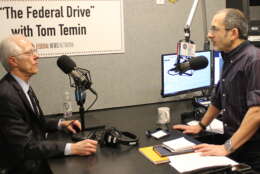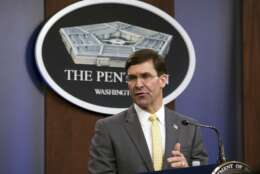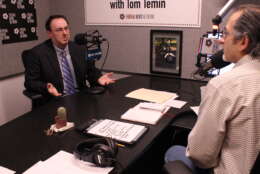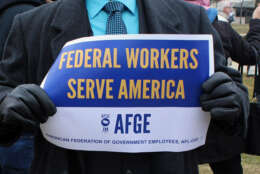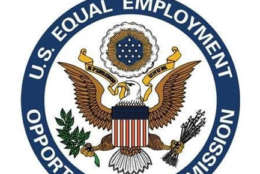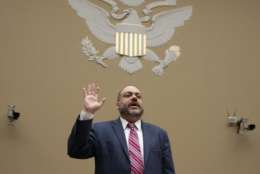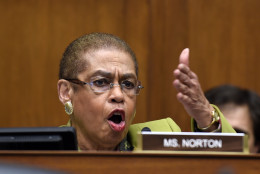Workforce Rights/Governance
-
One backlog goes down, another one pops up. That's how it is in the background security clearance process.
February 25, 2020 -
Is this maybe not the best time for government agencies to be cutting back on their telework programs? Can you say coronavirus?
February 25, 2020 -
Recently the Federal Labor Relations Authority turned down a request from the departments of Education and Agriculture to issue a policy statement clarifying what's a condition of employment and a working condition.
February 24, 2020 -
In today's Federal Newscast, after a delay, the White House publishes a memo allowing the defense secretary to to exclude civilian employees from current collective bargaining law.
February 21, 2020 -
The National Treasury Employees Union is challenging the Federal Labor Relations Authority's recent decision on dues payments in the U.S. Court of Appeals.
February 19, 2020 -
In today's Federal Newscast, the DCSA says it's business model is getting more efficient in its first full year of operation.
February 18, 2020 -
This isn't the first time defense and labor management officials have considered excluding civilian employees at the Defense Department from collective bargaining.
February 17, 2020 -
For the latest thinking in the whistleblower community, the Federal Drive with Tom Temin spoke to the co-founder and general counsel of the National Whistleblower Center, David Colapinto.
February 17, 2020 -
The American Federation of Government Employees said it faces a series of familiar challenges again this year, despite the addition of new paid parental leave benefits and a federal pay raise victory.
February 14, 2020 -
In today's Federal Newscast, the American Federation of Government Employees is bashing a White House proposal to cut funding and staff at the Equal Employment Opportunity Commission.
February 14, 2020 -
Debra D’Agostino, a founding partner of the Federal Practice Group, explains why she’s worried about the cracks in the civil services and whistleblower laws.
February 13, 2020 -
The Office of Personnel Management has its own recommendations for correcting the new federal paid parental leave law, as well as a wide range of other legislative proposals for 2021.
February 12, 2020 -
The Defense Department does not regularly check recruits' social media before allowing them in the military.
February 12, 2020 -
Henry Kerner, the special counsel of the U.S. Office of Special Counsel, explains why the Hatch Act still matters after 80 years on the books and what would happen if it went away.
February 10, 2020 -
To explain the bill and what's going on, Norton joined spoke to Federal Drive with Tom Temin.
February 07, 2020

